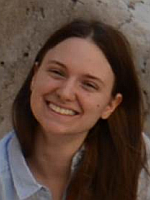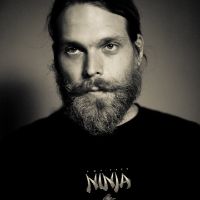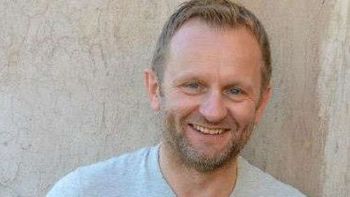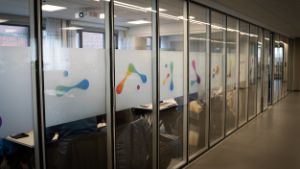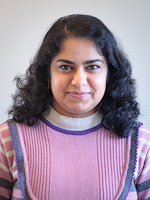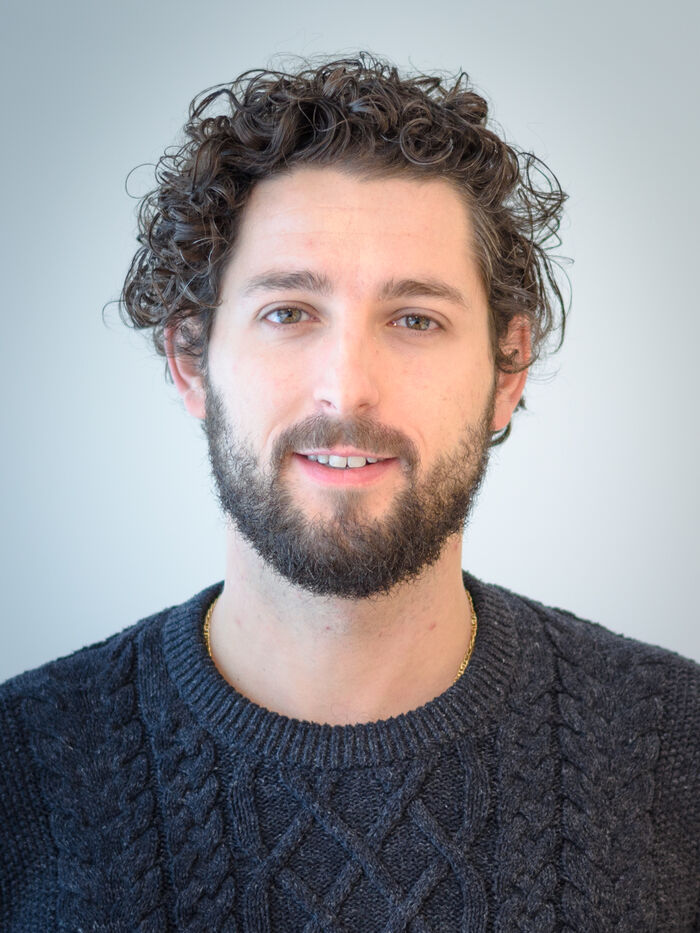Previous events - Page 117
C*-algebra seminar talk by Eduardo Scarparo (NTNU)
Doctoral candidate Claire Olga Maryse Aupart at the Department of Geosciences, Faculty of Mathematics and Natural Sciences, is defending the thesis Mechano-chemical feedbacks during serpentinization of ultramafic rocks for the degree of Philosophiae Doctor.
Hylleraas seminar, hosted in Oslo
Welcome to our GEOHYD Lunch Seminar Friday 13th of November @ 12:15 via videolink using Zoom. The seminar is helt by Sebastian Westerman, Dept. of Geosciences.
Abstract: Magnetic Resonance Elastography (MRE) is an emerging technique to measure the bio-mechanical properties of tissue in vivo. We present measurements of the shear modulus in healthy subjects, and in patients with brain cancer.
This talk is part of the Mechanics Lunch Seminar series. That means 20min talks plus discussion in an informal setting.
Zoom: To obtain the Zoom meeting details please contact Timo Koch (timokoch at math.uio.no).
Tomi Koivisto, University of Tartu.
Speaker: Manon Bajard, Dept. of Geosciences, UiO
Title: Instability or adaptation of the pre-Viking society to the climate variability of the Late Antiquity?
city
Kei Hirose
From ELSI, Japan
Hosted by Reidar Trønnes
Steffen Grønneberg (Department of Economics, BI Norwegian Business School) will give a talk on November 10th at 14:15 (held with restricted attendance in the Erling Sverdrups plass, Niels Henrik Abels hus, 8th floor and streamed in Zoom - the link will be sent by mail one day in advance).
Late Lunch Talk by Anna Komisarczuk
The Information System Seminar Series features, Egil Øvrelid, a Post-Doctoral fellow at Department of Informatics, UiO
Welcome to our GEOHYD Lunch Seminar Friday 6th of November @ 12:15 via videolink using Zoom. The seminar is helt by Trine Jahr Hegdahl, Dept. of Geosciences.
Abstract: Upon burst, air bubbles release droplets that transfer biological and chemical materials from water bodies to the atmosphere. This mechanism is one of the main sources of cloud condensation nuclei and participates to airborne contamination when the bulk water contains pathogens. Predicting the size and composition of droplets emitted by bubbles requires a fundamental understanding of their dynamic at the surface, yet a consistent physical picture is lacking. Relying on experimental data from bubbles generated in various environments and using scaling analysis, I will show that surface tension gradients control the drainage of bubbles. I will also explain how local perturbations of surface tension can explain their seemingly stochastic burst mechanism. Consequences for application purposes will be mentioned throughout the presentation: I will notably take the examples of bubbles in saltwater and in water contaminated with bacteria.
This talk is part of the Mechanics Lunch Seminar series. That means 20min talks plus discussion in an informal setting.
Zoom: To obtain the Zoom meeting details please contact Timo Koch (timokoch at math.uio.no).
by
Cecilie Mauritzen
From Meteorological Institute, Oslo
Hosted by Carmen Gaina
Women Researchers in Informatics (WRI) in collaboration with UiODoc are hosting the webinar Preparation for Academic Jobs after PhD. The webinar will be an informative series of talks providing attending PhDs and PostDocs with the means to prepare themselves for interviews for the next positions within academia and beyond. You will also learn about the evaluation process for postdoc and faculty positions, including the interview phase. The webinar consists of two talks and a panel discussion with space for the participants to ask questions.
Tor Ole Odden:
"The field of educational research has a massive literature base, with many journals that have been publishing articles for almost a century (or longer). How do we sort through and make sense of literature at this scale? We have begun using an unsupervised machine learning technique from the field of natural language processing, known as latent Dirichlet allocation, to analyze articles from the fields of physics education research and science education research. This technique allows us to extract latent themes, or topics, from the literature and quantify the rise and fall of those topics over time.
In this talk, I will present the basics of the technique, describe some of its underlying theory and applications, and showcase some of the trends that it reveals in how science education theory and practice has evolved over the last 20-100 years."
The Information System Seminar Series features, Åshild Kolås, a social anthropologist and Research Professor at PRIO
Spatiotemporal single cell analysis of human colonic macrophages
Hylleraas seminar, hosted in Oslo
Welcome to our GEOHYD Lunch Seminar Friday 30th of October @ 12:15 in Aud 2, The Geology building. The seminar is helt by Anders Mattias Lundmark, Dept. of Geosciences.
Nancy Narang, Rosseland Centre for Solar Physics, Institute of Theoretical Astrophysics (UiO).
Speaker: Michael J. Mills, National Center for Atmospheric Research, Boulder
Title: Volcanic eruptions, global climate, and ozone loss
by
Anne Glerum
From GFZ Potsdam, Germany
Hosted by Valentina Magni
We invite you to a lunch meeting where we will focus on new RoCS publications, possible future data collaborations and input to ITA's strategy 2020-2030. You are welcome to join us in person or by Zoom.
Doctoral candidate Mattia Mina at the Institute of Theoretical Astrophysics, Faculty of Mathematics and Natural Sciences, is defending the thesis "Cosmology at small scales: ultra-light dark matter and baryon cycles in galaxies" for the degree of Philosophiae Doctor.
